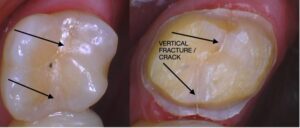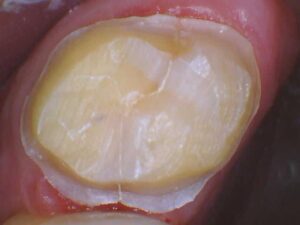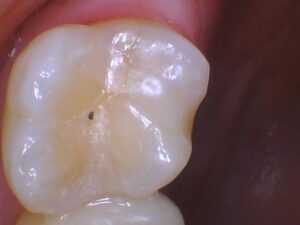 When it comes to taking care of our teeth, we generally hear the same kind of advice all of the time: brush and floss everyday and don’t eat too much candy. While this advice is extremely important, there are a lot of additional ways to keep your teeth healthy as well. We asked our dentists at Water Tower Dental Care to share some tips for taking care of your teeth that you probably haven’t heard before. Here are 6 unusual teeth tips straight from our dentists.
When it comes to taking care of our teeth, we generally hear the same kind of advice all of the time: brush and floss everyday and don’t eat too much candy. While this advice is extremely important, there are a lot of additional ways to keep your teeth healthy as well. We asked our dentists at Water Tower Dental Care to share some tips for taking care of your teeth that you probably haven’t heard before. Here are 6 unusual teeth tips straight from our dentists.
-
Eat Cheese (In Moderation)
Believe it or not, cheese is good for your teeth! Like the peroxide-based teeth-whitening solutions we described earlier, cheese helps to neutralize acids in your mouth, increasing your pH levels for about 30 minutes, according to the Academy of General Dentistry. This means less bacteria breeding in your mouth and less teeth erosion. Cheese also causes salivation, which helps get rid harmful bacteria and food particles. Finally, cheese contains casein phosphate, which keeps your teeth strong. Unfortunately, this doesn’t mean you should eat all of the cheese that you possibly can. You only need about ⅓ of a slice to get these oral benefits.
-
Whiten Your Teeth For Health & Cosmetic Reasons
While teeth whitening can make your teeth look better than ever, its benefits aren’t purely cosmetic. Teeth whitening can also help keep your teeth healthy by removing plaque and preventing tooth decay. Recent research has found that teeth whitening products that contain a peroxide-based solution can effectively get rid of plaque, reduce caries bacteria, and increase the pH level of your mouth, according to Professor Van B. Haywood.
When the pH level in your mouth becomes too low, this means that it is highly acidic. If your pH level is highly acidic, bacteria will begin to breed and your enamel will break down. Peroxide-based teeth-whitening solutions will neutralize your pH levels to a healthy 7 or 8, reducing the acidity in your mouth. This is especially helpful after you eat or drink highly acidic food, such as coffee, wine and citrus fruits. Ask us about our at-home teeth whitening kits to help your teeth look and feel healthier today!
-
Keep Your Mouth Healthy With Coconut Oil
Coconut oil has a ton of health benefits, from decreasing cholesterol levels to helping diabetes. It turns out that coconut oil is great for your oral health too. Through a method called oil pulling, coconut oil can actually help pull bacteria off of your teeth for a healthier and cleaner smile. All you have to do is swish around a teaspoon of coconut oil in your mouth for about 20 minutes. Of course, you should still keep up with your regular routine of brushing, flossing and using mouthwash.
If you’re questioning the validity of this claim, good for you. You shouldn’t believe everything you read on the Internet, especially when it comes to oral health. Thankfully, there are various studies, including the following three, that have proved that oil pulling effectively fights off bacteria: Study 1, Study 2, Study 3. You can read more about oil pulling for your teeth here.
-
Use Oral Probiotics For Your Mouth
In the past, probiotics were thought to only help digestive and immune health. But recently, probiotics designed specifically for oral health have been found to naturally support gum and tooth health, make your breath fresh and whiten your teeth. Effective probiotics trigger the production of healthy bacteria that work to keep your mouth and gums healthy. They also reduce the nutrients for bacteria that cause bad breath, and produce low doses of hydrogen peroxide to gently whiten your teeth. Learn more about oral probiotics from Evora.
-
Don’t Use Your Teeth As Tools
While it may be more convenient to open that bag of chips with your teeth rather than finding scissors, using your teeth as tools can have serious (and expensive) consequences. Many of our patients have come in with broken, cracked or chipped teeth because they tried using their teeth to cut or open something. Your teeth are meant for chewing food in your mouth - Not for anything else. It’s not worth the pain or the price to fix your teeth.
-
You Can Use A Reversal Agent for Mouth Numbing
Some patients avoid important dental procedures because of the irritating and sometimes damaging numbing sensation that they experience hours afterwards. While it’s great to be numb in the dentist’s chair, it’s not so great when you’re hungry a couple hours afterwards. At worst, some patients chew their lip and gums because they can’t feel what their teeth are doing. Many patients may drool and not be able to talk properly, smile, or eat and drink because their mouths are numb. Thankfully, at Water Tower Dental Care, we offer reversal agents for teeth numbing, so that you can return to feeling your mouth much faster, and avoid the painful and embarrassing after effects.
We hope these unusual tips from our dentists, along with your normal health routine, help you to make your teeth even healthier. If you would like any more tips, reach out to us on our Facebook page. We’re full of helpful and creative ways to keep your teeth looking and feeling as good as new!





 The food and drink you put into your mouth can make all of the difference when it comes to your dental health. When some people drink water, soda, or other drinks with ice, they may experience tooth pain. Does this mean ice is bad for your teeth? Let’s take a look now.
The food and drink you put into your mouth can make all of the difference when it comes to your dental health. When some people drink water, soda, or other drinks with ice, they may experience tooth pain. Does this mean ice is bad for your teeth? Let’s take a look now. Do you feel like your teeth are beyond repair? You’ve come to the right place. When you’ve suffered a serious trauma or have left teeth untreated for a long period of time, you might feel like giving up hope on your smile. But the reality is, getting a full-mouth reconstruction can leave your teeth looking as good as new!
Do you feel like your teeth are beyond repair? You’ve come to the right place. When you’ve suffered a serious trauma or have left teeth untreated for a long period of time, you might feel like giving up hope on your smile. But the reality is, getting a full-mouth reconstruction can leave your teeth looking as good as new! Before and after getting full-mouth reconstruction at Water Tower Dental Care.[/caption]
Before and after getting full-mouth reconstruction at Water Tower Dental Care.[/caption] Constant tooth pain is irritating, and can be downright debilitating if it hurts enough. If you experience regular bottom teeth pain, the first thing you should do is visit your dentist so that whatever is wrong doesn’t get worse. But it doesn’t hurt to learn what might be causing your bottom teeth to hurt in the meantime. Here are 5 reasons why your bottom teeth may hurt.
Constant tooth pain is irritating, and can be downright debilitating if it hurts enough. If you experience regular bottom teeth pain, the first thing you should do is visit your dentist so that whatever is wrong doesn’t get worse. But it doesn’t hurt to learn what might be causing your bottom teeth to hurt in the meantime. Here are 5 reasons why your bottom teeth may hurt. When it comes to taking care of our teeth, we generally hear the same kind of advice all of the time: brush and floss everyday and don’t eat too much candy. While this advice is extremely important, there are a lot of additional ways to keep your teeth healthy as well. We asked our dentists at Water Tower Dental Care to share some tips for taking care of your teeth that you probably haven’t heard before. Here are 6 unusual teeth tips straight from our dentists.
When it comes to taking care of our teeth, we generally hear the same kind of advice all of the time: brush and floss everyday and don’t eat too much candy. While this advice is extremely important, there are a lot of additional ways to keep your teeth healthy as well. We asked our dentists at Water Tower Dental Care to share some tips for taking care of your teeth that you probably haven’t heard before. Here are 6 unusual teeth tips straight from our dentists. From putting on caps to placing dental veneers, dentists do a lot of interesting things to keep your teeth in tip-top shape. If you live your daily life outside of the dental world, you might find all of the stuff we do to be a bit confusing. We’re here to break down some of the most popular cosmetic dental treatments we offer at Water Tower Dental Care to help you better understand which procedures can best help your smile. Here’s the difference between caps, crowns, veneers, onlays, inlays and fillings.
From putting on caps to placing dental veneers, dentists do a lot of interesting things to keep your teeth in tip-top shape. If you live your daily life outside of the dental world, you might find all of the stuff we do to be a bit confusing. We’re here to break down some of the most popular cosmetic dental treatments we offer at Water Tower Dental Care to help you better understand which procedures can best help your smile. Here’s the difference between caps, crowns, veneers, onlays, inlays and fillings. Balancing work, friends, family, hobbies and relaxation time is hard enough. Trying to find the time to squeeze in a dentist appointment to fix your broken tooth before it gets worse may seem impossible. You need to fix your broken tooth before your nerves are exposed to dangerous bacteria that can cause serious infection, but you can’t seem to find the time to get around to making multiple visits to the dentist. That’s where CEREC One-Visit Crowns come in.
Balancing work, friends, family, hobbies and relaxation time is hard enough. Trying to find the time to squeeze in a dentist appointment to fix your broken tooth before it gets worse may seem impossible. You need to fix your broken tooth before your nerves are exposed to dangerous bacteria that can cause serious infection, but you can’t seem to find the time to get around to making multiple visits to the dentist. That’s where CEREC One-Visit Crowns come in. 
 Just as you might expect, as the rest of your body ages, your teeth age as well. So what exactly happens to your teeth as they get older and what can you do now to help them out?
Just as you might expect, as the rest of your body ages, your teeth age as well. So what exactly happens to your teeth as they get older and what can you do now to help them out? Repairing a chipped tooth is usually not as hard as one would imagine. Through several different processes, depending on the severity of the chipped tooth, a dentist can make your smile look good as new.
Repairing a chipped tooth is usually not as hard as one would imagine. Through several different processes, depending on the severity of the chipped tooth, a dentist can make your smile look good as new.




 Website Powered by Sesame 24-7™
Website Powered by Sesame 24-7™